Iklimku: How Climate Photography Can Tell Stories Beyond Words
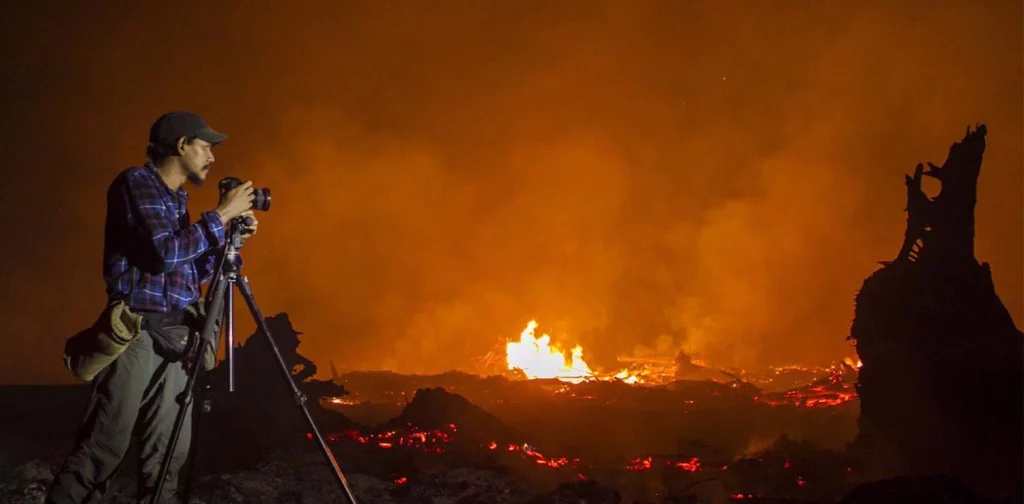
Ulet Ifansasti photographing the wildfire in Central Kalimantan in 2019 | Photo: Fully Syafi.
Climate change is real, and the impacts are happening before our eyes. The rising sea level, melting glaciers, land degradation, and biodiversity and ecosystem decline are some examples. However, not everyone is well-informed on this matter. Climate photography might change that.
Iklimku (= my climate) is an initiative established by several professional Indonesian photojournalists. This initiative tries to tackle the need for more information on climate change through photography campaigns. Furthermore, Iklimku aims to foster awareness and interest from the public and policymakers regarding climate change and the impacts that follow. Iklimku was born from the belief that photography can tell stories in ways words cannot.
On Monday, 6 February 2023, Green Network talked with Ulet Ifansasti, the initiator of Iklimku, via phone call. Ulet is a photojournalist who works for international media and photo suppliers, such as New York Times and Getty Images. We talked about environmental degradation, climate change, and how we can take a role in mitigating the impacts.
Many people are still not well-informed about climate change. What do you think is the reason?
As a photojournalist since 2009, I was aware of environmental degradation, just not how severe it was. If that was me speaking as a journalist, how about the general public? We don’t need to talk about climate change on a global scale yet, but from a national or even smaller scale first.
Most affected groups—farmers, fishermen, and others who depend on the weather—don’t know what is happening. They don’t understand because climate change is tricky and complicated. They need full, clear, and comprehensive information on, say, why the dry season is longer now, or why the weather is unpredictable, and so on.
So, one of the reasons why people don’t understand or are not well-informed about climate change and environmental degradation is because the information on said issues hasn’t been delivered effectively to the public.
How did Iklimku first start out?
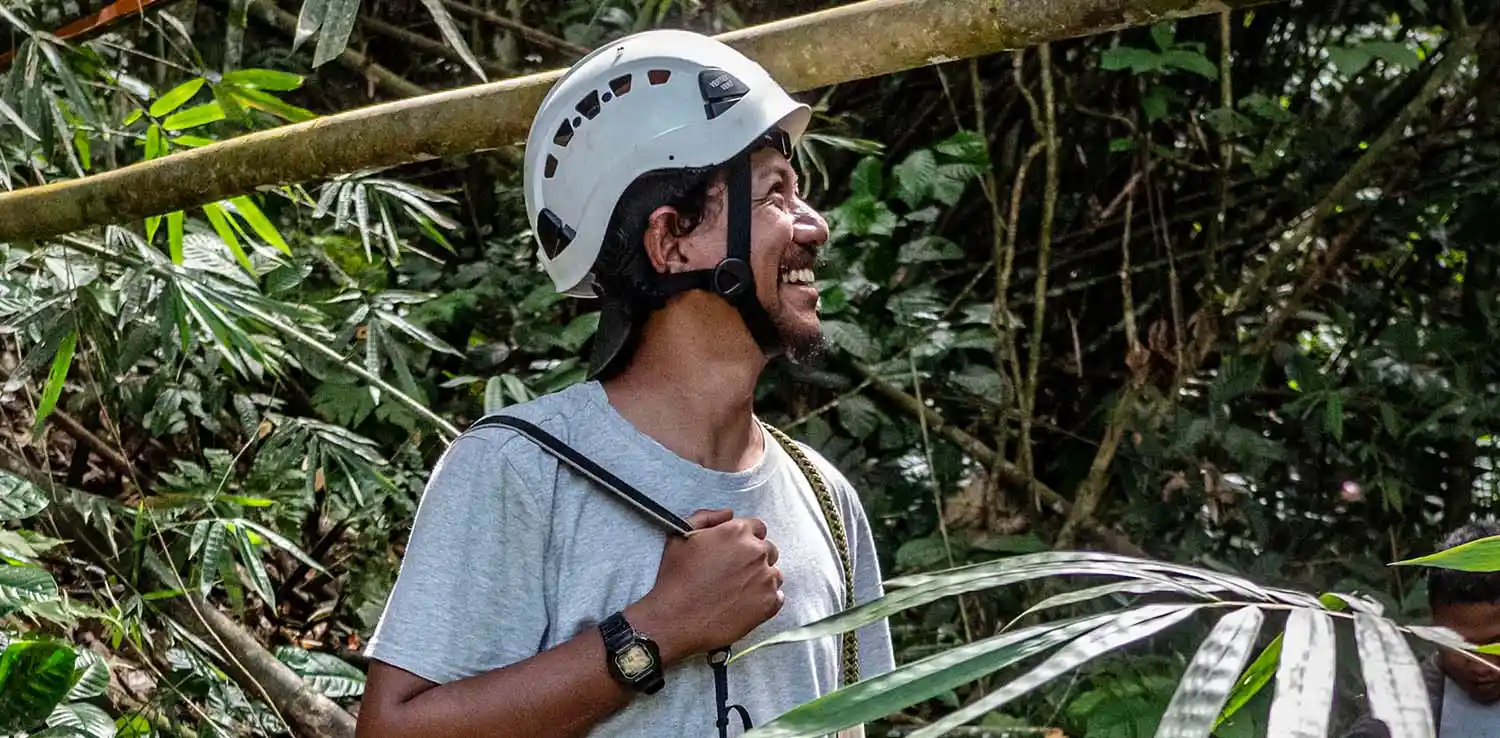
Iklimku was born from my own restlessness after a few years of taking photos, doing field coverage, and working with NGOs. I witnessed floods, wildfires, deforestation, and other natural disasters. It finally popped up in my mind that I want people to know more about this issue.
Mainstream media mostly only cover the current hot issues but forget about them the next day. There is little to no effort in doing long-term coverage. Meanwhile, people need to know that natural disasters are one of the impacts of environmental degradation and climate change. They need to know how severe the crisis that is currently happening.
Then, I thought about the stocks of photos I have taken from many places. In Sumatra, Kalimantan, and Papua, I saw how forests disappeared and cleared for agriculture and other purposes. How deforestation caused people and wildlife to suffer. In my opinion, visuals can convey stories better to people, bringing more positive impacts and driving changes. Moreover, right now, people don’t like to read that much. I don’t know why.
In social media, for instance, we can try to count how many seconds people are willing to read a post. People tend to just scroll. In my mind, photos speak more concretely. When we talk about how 1 million hectares of forests have been cleared, can people imagine how big it is without a visual?
When illustrated with a photo, like an aerial photo, people can say, “Wow, it’s really huge!” The same goes for floods, sinking houses, and deserted fields. People can feel more and keep those feelings in their memory when presented through photos.
Eventually, I met with my fellow photojournalists and named this initiative Iklimku. We want to tell stories of what happened to the environment near us right now. For example, stories about food, like coffee plantations whose crop quality declined due to land degradation. These stories are more personal and closer to our everyday lives.
What does Iklimku strive for?
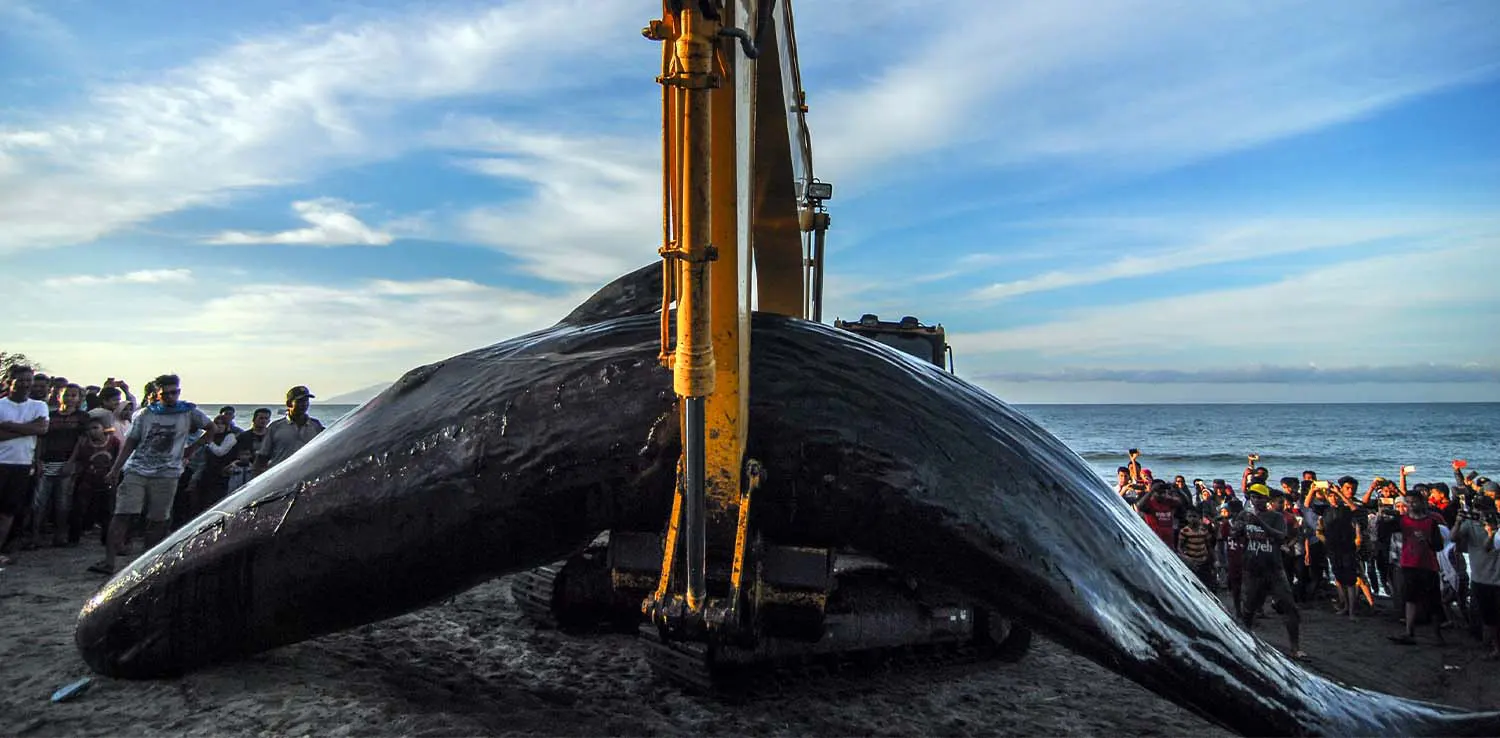
The core of our initiative is the campaign to educate and deliver information. We hold online seminars about the state of our environment. We also organize photography workshops and training at schools. Some time ago, we went to Cilincing, an area suffering from the rising sea level. We worked with Komunitas Jurnalis Cilik (Little Journalist Community) to organize photography training using disposable cameras. Aside from photography, the training also taught the participants about patience in taking photos.
At first, Iklimku was just a personal thing. We didn’t think about turning this into a media outlet. We only intended to spread information and knowledge that we had. But, Iklimku eventually turned into one.
We also welcome stories from various regions about the impacts of climate change. We accept photo stories and publish them when we find them interesting. There is a fee for it, even though it isn’t much. The theme of the photos revolves around the impacts of climate change and environmental degradation, the resilience and adaptation of those affected, and innovations that are born to face those conditions.
Are there any positive impacts or changes happening in the regions you have covered?
I don’t know yet. There hasn’t been one so far. But at least some positive responses came from universities and schools. They invited us to share our knowledge with the students. Because it’s education that we truly need, not the instant, temporary, and partial solutions.
Who does Iklimku work with?
We have worked together with various communities; I have mentioned one before, the training with Komunitas Jurnalis Cilik (Little Journalist Community). We have also worked with communities and individuals like artists and other journalists. We are still exploring partnership opportunities and also trying to look for donors.
The bottom line is we are open to collaborating with everyone.
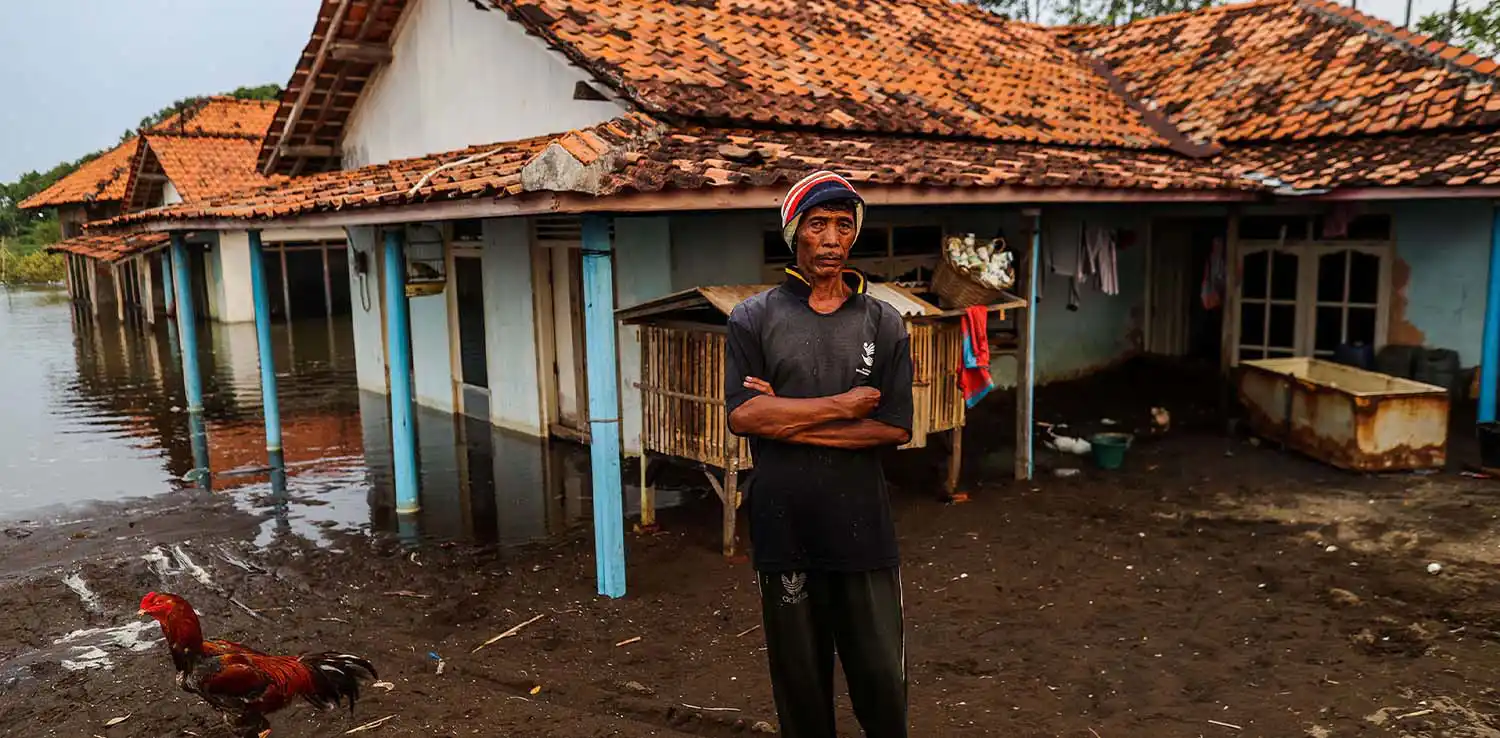
What are the challenges for Iklimku so far?
Giving an understanding of environmental issues to the people in the fields is a challenge for us. Environmental issues are broad, from deforestation, floods, and plastic waste. The problem is that only specific issues have been photographed so far. People already knew about those. Technically speaking, the photos sure are interesting. Still, people need to know other problems beyond those to raise awareness and create long-term understanding. We don’t want people to know today and forget tomorrow.
We would like to bring up many things to mitigate climate change. Food waste, for example. Most people are still skeptical, “How can food waste be a problem?” Another thing is how we can shift to a more environmentally friendly lifestyle. How faith and religion can take part in conveying the impacts of climate change.
Data is another challenge for us. When we want to tell stories, we can’t just present the visual and call it a day. There has to be data to strengthen and validate the visual. It becomes a challenge of its own for us because it would backfire if we use the wrong data.
What are the goals of Iklimku?
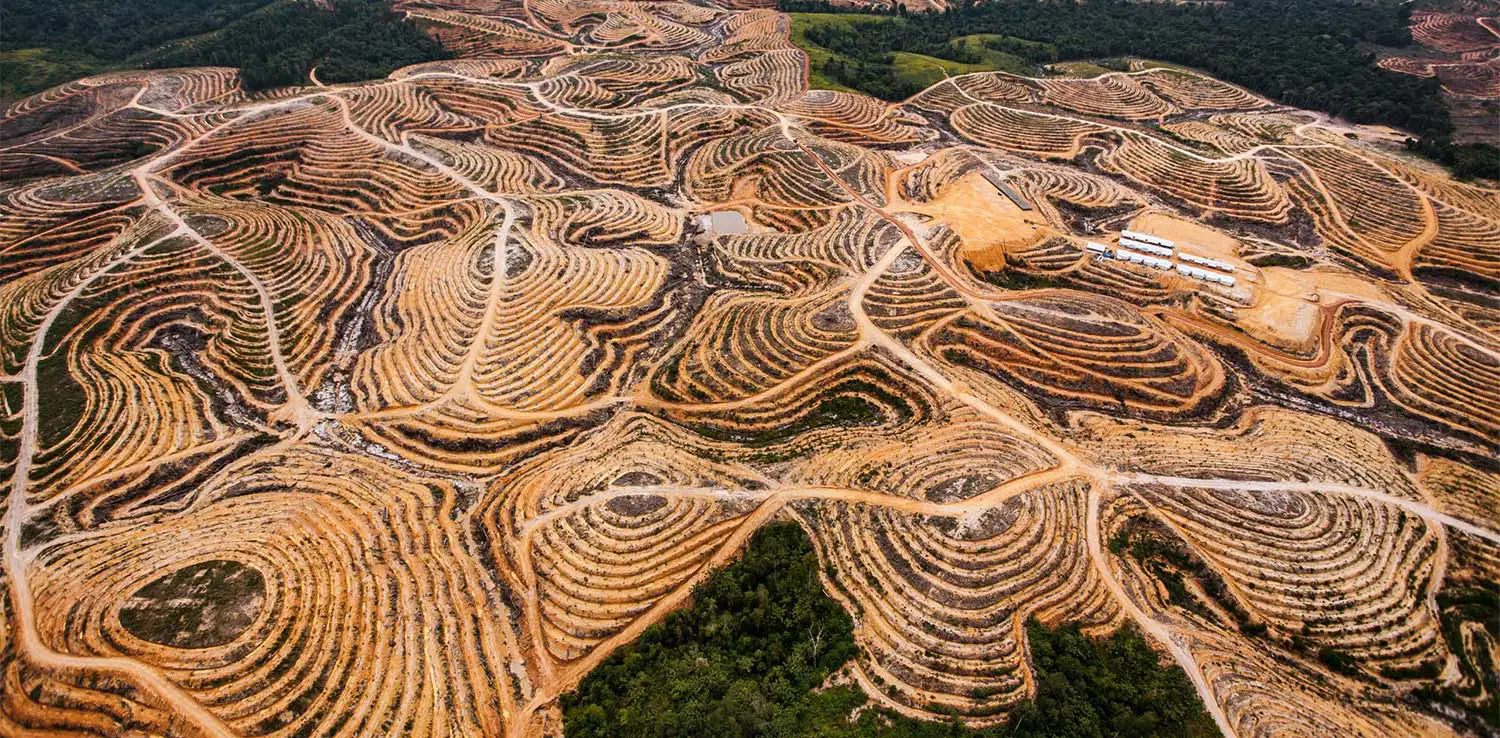
We don’t have a grandiose goal. We simply want to spread as much information as possible about environmental degradation and the impacts of climate change to the public. Other than that, we also want to deliver positive stories and innovations from the people affected.
What kind of policy do you wish for to tackle climate change?
Government regulations that can speed up climate change mitigation, that’s for sure. Clear and fair regulations that everyone needs to obey, without exceptions. Comprehensive regulations that leave no gap.
About electric cars, for example. Some still use electricity generated by coal power plants to charge those cars. Isn’t it ridiculous? Batteries are not actually renewables; they are produced in the mines. Another example is plastic bag restriction. We have to shift to paper bags. Then, how many trees need to be cut down to produce these bags?
Eventually, we can’t depend only on the government to solve these issues. We also need to have awareness and take part. Once again, we must work together to face the climate crisis’s impact. The door of collaboration is wide open for everyone.
See more climate photography and stories about environmental degradation and climate change impacts in Indonesia on Iklimku’s Instagram account: @iklimkuorg.
Translator: Kresentia Madina
Read the original article in Indonesian at Green Network Indonesia.

Subscribe to Green Network Asia
Strengthen your personal and professional development with cross-sectoral insights on sustainability-related issues and sustainable development across the Asia Pacific and beyond.
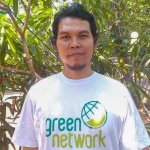
Abul Muamar
Amar is the Manager for Indonesian Digital Publications at Green Network Asia. He graduated from the Master of Philosophy program at Universitas Gadjah Mada and Bachelor of Communication Science at Universitas Sumatera Utara, Indonesia. He has more than ten years of professional experience in journalism as a reporter and editor for several national-level media companies in Indonesia.


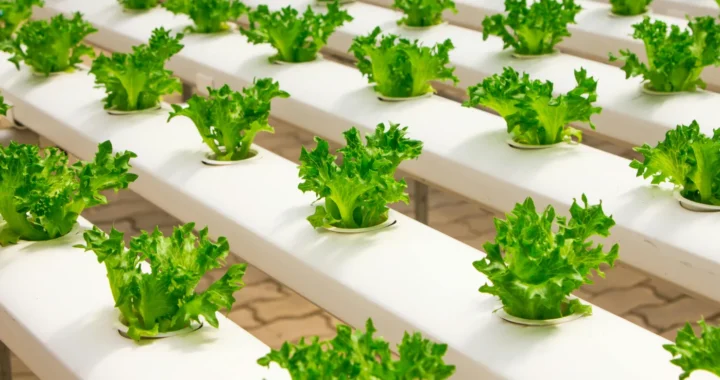 How Plant the Emirates Aims to Support Food Self-Sufficiency in the UAE
How Plant the Emirates Aims to Support Food Self-Sufficiency in the UAE 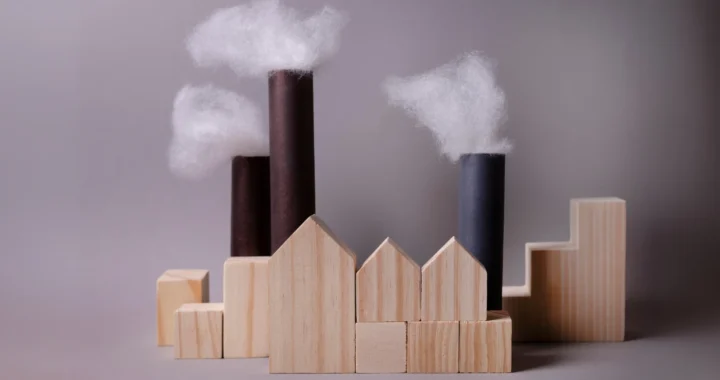 GRI’s Updated Sustainability Standards on Climate Change and Energy
GRI’s Updated Sustainability Standards on Climate Change and Energy  Looking into Biochar as a Bioremediation Agent
Looking into Biochar as a Bioremediation Agent 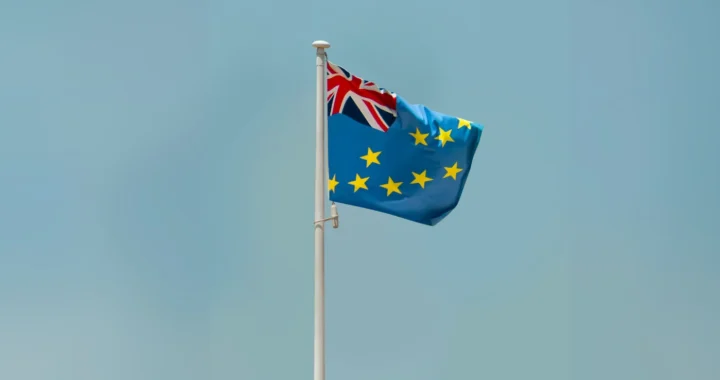 Australian Climate Visa for Citizens of Tuvalu: Showcasing cross-border partnership in light of the climate crisis
Australian Climate Visa for Citizens of Tuvalu: Showcasing cross-border partnership in light of the climate crisis  Nickel Mining in Raja Ampat and the Widespread Cost of Natural Resource Exploitation
Nickel Mining in Raja Ampat and the Widespread Cost of Natural Resource Exploitation  Lumbung Sosial: Challenges and Opportunities of Indonesia’s Social Barn Program
Lumbung Sosial: Challenges and Opportunities of Indonesia’s Social Barn Program